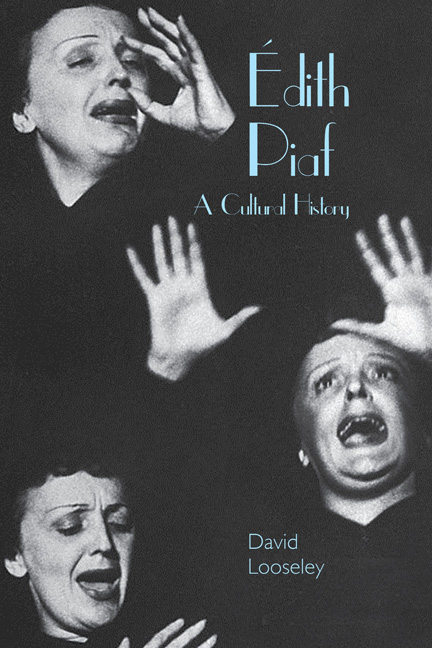3 - A singer at war
from Part I - Narrating Piaf
Summary
‘The war was a period of plenitude for Piaf’, writes a biographer. ‘She was probably never funnier, never more confident about her abilities or in better physical shape.’ Certainly, the years of German occupation (1940–44) represent a peak in her artistic achievements, as well as in her self-discovery and self-invention. But making sense of that peak isn't straightforward. One problem is again the shortage of reliable evidence amid all the narrative inventions. Second, those years are still, three-quarters of a century later, a sensitive matter, even as they fall out of living memory. The Vichy era isn't the subject of quite as much overt controversy as it was 40 years ago, when the heroic myths of a resistant nation promoted by De Gaulle began to crumble under scrutiny. But the sensitivity remains. Accounts of any public figures who experienced the Occupation feel compelled to reveal which side their subjects were on, and those that don't are noticed, as happened with Dahan's film La Môme (2007), which glossed over that period.
Commonly, such accounts portray their subjects as covertly resistant if they weren't actively so. This is certainly the case with Piaf. For Albert Bensoussan, Piaf was ‘definitely resistant’. Both Monique Lange and Anne Sizaire see the fact that she had a Jewish lover during the Occupation as a personal form of ‘resistance’. Carolyn Burke is a little more nuanced: the singer ‘detested the occupiers’ and yet ‘had to go on singing—to earn her keep and because she could not do otherwise’. And Burke does at least cite Henri Contet's view that, although Piaf hated the Nazis, ‘she was hardly bothered by the Occupation’. But she is still scraping the barrel when she claims that Piaf's performance of ‘Le Disque usé’ (The worn-out record, Émer, 1945) in occupied Paris was ‘risky’ not just because its composer was Jewish but because the protagonist is a young woman who portrays ‘a proud, haughty stance […] that could be taken as a kind of resistance.’ But it's David Bret who takes matters to extremes:
During the war years Edith Piaf became one of the unsung heroines of occupied France. […] Edith's nerve, courage, and love for her countrymen knew no bounds.
- Type
- Chapter
- Information
- Édith PiafA Cultural History, pp. 65 - 80Publisher: Liverpool University PressPrint publication year: 2015

